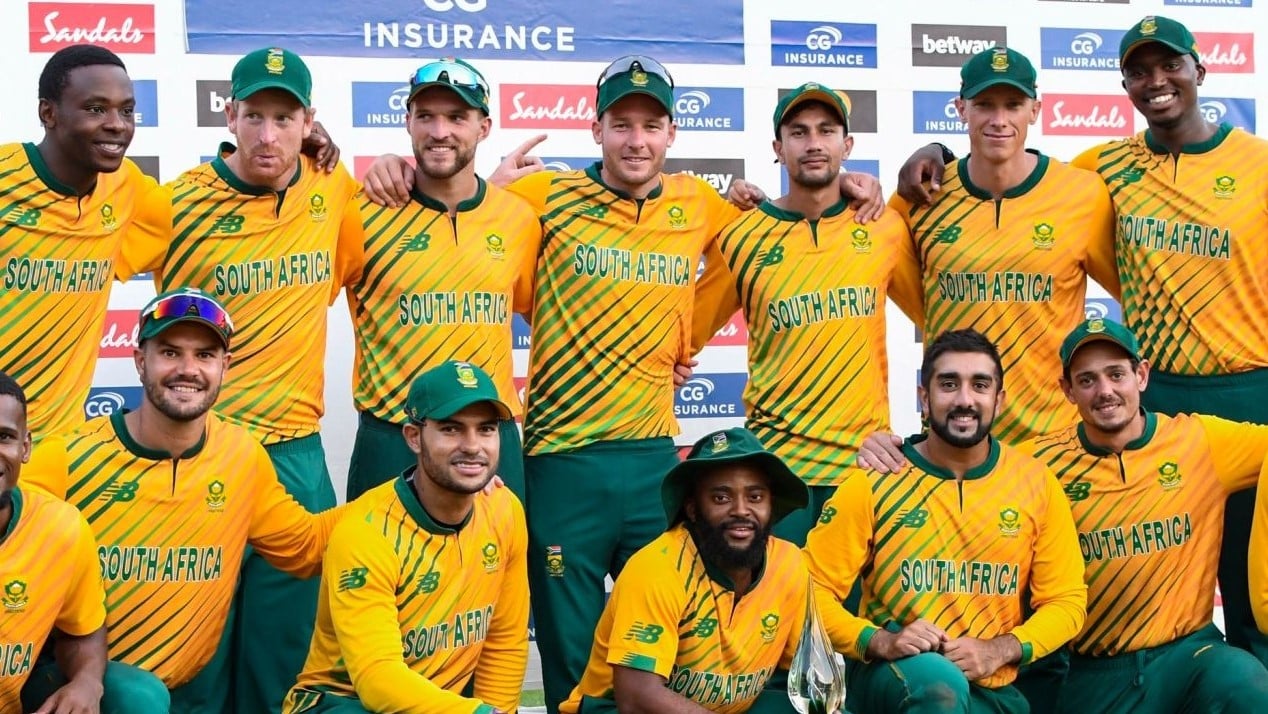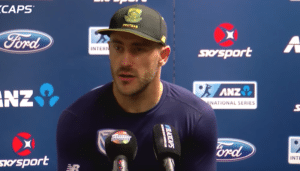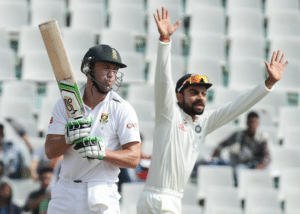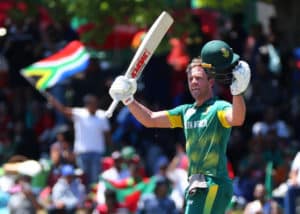South Africa, perennial underachievers in ICC events, will go into the T20 World Cup unburdened by high expectations.
The team is short on big names and big-time experience, with seven of their squad making their debuts at a world event.
“There’s not much expectation,” admits captain Temba Bavuma, himself a World Cup debutant.
However, he quickly adds that he is talking about external perceptions rather than in the team room where, he says “we have a certain level of expectation”.
Bavuma says there is a quiet confidence in a team notably missing T20 stars such as AB de Villiers, who confirmed his retirement from international cricket earlier in the year, and former captain Faf du Plessis, who was available but not selected.
“We have had some positive results which are good for our confidence,” said Bavuma. “We have done our work as a collective.”
Those good results include a current streak of a South African record-equalling seven successive T20I wins, encompassing series victories over T20 World Cup champions West Indies, Ireland and Sri Lanka – all achieved away from home.
Unusually, South Africa’s success has been built on accurate spin bowling, a major departure for a country long known for its battery of fast bowlers, but likely to be a positive on the slow pitches expected in the UAE.
The Proteas started each match in Sri Lanka in September with three slow left-arm bowlers – Tabraiz Shamsi, Bjorn Fortuin and Keshav Maharaj – and also made use of the right-arm off-spin of top-order batter Aiden Markram.
The slow men collectively claimed 16 of the 22 Sri Lanka wickets that fell to bowlers.
South Africa’s batting, though, shapes up as a problem with the form of Quinton de Kock seemingly key to the side’s fortunes.
De Kock’s form dipped during an unsuccessful stint as captain in all three international formats, leading him to take a “mental-health break” after a disappointing tour of Pakistan in January and February.
But the left-handed opener has been back to his best since coming back without the burden of captaincy.
His total of 455 runs over the past three series is 196 more than the next-highest scorer, fellow opener Reeza Hendricks.
Seven of South Africa’s nine wins in the past three series have come after batting first and posting relatively modest totals, ranging from 159 to 189, with the latter total coming against lowly-ranked Ireland.
ALSO READ: Who’s laughing now? The rise and rise of Twenty20 cricket
Bavuma will be hoping to break a long-running history of failure at ICC events since the country won the ICC Knock-Out Trophy, forerunner of the Champions Trophy, in 1998.
Since then they have played in 19 tournaments, reaching the semi-finals nine times without going on to a final.
South Africa’s solitary recent success was at U19 level when Markram led a side that included fast bowler Kagiso Rabada to victory in the 2014 junior event, also in the UAE.
“At the time there wasn’t a lot of media exposure. There was a lot less pressure on the players,” said Markram, who believes the current side is mentally equipped to deal with pressure. “We’re not bringing too much baggage into this World Cup. Everyone here is pretty free-spirited.”
Low public expectations could work in the favour of Bavuma’s team – but the pressure will be ramped up if South Africa reach the knockout stage.
ALSO READ: Six players to watch at the T20 World Cup
© Agence France-Presse
Photo: Randy Brooks/AFP via Getty Images





